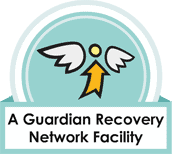Medically Assisted
Alcohol Detoxification in Denver
If you or someone you love has been suffering from an alcohol use disorder, CuraWest is available to help. We offer medical detox services and residential treatment options in Denver, Colorado, providing clients with an effective, multi-staged program of clinical care. Because the symptoms associated with alcohol withdrawal can be severe when left untreated, we recommend entering into a medical detox program regardless of the severity of the alcohol use disorder. Once you have been physically stabilized, you have the option of immediately transitioning into a higher level of care, where you will continue to heal on a physical, mental, emotional and spiritual basis.
The Centers for Disease Control and Prevention defines alcohol as “an intoxicating ingredient found in beer, wine, and liquor.” Alcohol is produced by fermentation and it affects every single organ within the human body. Alcohol is a central nervous system depressant, one that leads to feelings of relaxation and causes a severe reduction in inhibitions. Alcohol enters the liver where it is metabolized by enzymes, and if the amount of alcohol entering the bloodstream cannot be effectively metabolized by the liver, it will cause drunkenness. There are multiple factors that affect how intoxicated an individual becomes when consuming alcohol, including how much is consumed, how quickly it is consumed, the body weight of the individual and whether or not there is an existing tolerance.
The CDC reports that a standard drink equates to 14 grams of alcohol. A standard drink is generally 12 ounces of beer, 5 ounces of wine, 8 ounces of malt liquor or one shot of liquor – one shot is generally 1.5 ounces. Moderate alcohol consumption is defined as having somewhere around one alcoholic beverage per day – anything over that could be considered alcohol abuse. The Dietary Guidelines for Americans suggests that drinking in response to an uncomfortable emotional state is very dangerous, and could quickly lead to alcohol misuse. Most cases of alcohol misuse and addiction stem from self-medication.
Alcohol Addiction & Misuse
The National Institute on Alcohol Abuse and Alcoholism reported that in the year 2018, the National Survey on Drug Use and Health found that 86.3 percent of all Americans had consumed alcohol at least once during their lifetimes. 70 percent reported that they had consumed alcohol within the past year, and 55.3 percent reported that they had consumed alcohol within the past month. The truth is, drinking alcohol is truly as much a part of American culture as baseball and apple pie – drinking (even drinking to excess) has been profoundly normalized. When it comes to heavy drinking and binge drinking, rates across the country are also exceptionally high. During the same year, the survey found that 26.45 percent of American men and women over the age of 18 engaged in binge drinking at least once during the past month. The Centers for Disease Control and Prevention defines binge drinking as a detrimental pattern of alcohol consumption that quickly brings someone’s blood alcohol content (BAC) above the legal limit of 0.08. The CDC also suggests that binge drinking occurs when a male drinks over five alcoholic beverages within an hour or a woman drinks over four alcoholic beverages within an hour. However, the majority of people who engage in binge drinking do not suffer from a severe alcohol-related disorder.
We Are Here For You
Let Us Help You Heal
Our Alcohol detoxification experience is second to none.
Learn how we can help by speaking with one of our Treatment Advisors today.
Signs & Symptoms of Alcoholism
Those who drink alcohol will be affected by the chemical substance in a variety of ways. Some individuals can drink socially and safely, stopping after one or two alcoholic beverages and limiting their consumption to the weekends. Others will have a difficult time controlling their intake, and will not be able to stop drinking once they start. There are several symptoms that are associated with alcohol intoxication, including slurred speech, a lack of coordination, an increase in risk-taking behaviors, memory gaps (black outs), reduced inhibitions, lack of bodily control and severely slowed reflexes. These physical symptoms might also indicate an alcohol abuse disorder if they occur consistently, however, when it comes to alcohol abuse and addiction there are numerous other signs and symptoms to look for.
Signs & symptoms of alcohol abuse include:
- Alcohol cravings – These cravings can be psychological and physical in nature.
- An inability to stop drinking once one alcoholic beverage is consumed – Individuals who are suffering from an alcohol abuse disorder might tell themselves, “I’m only going to have one drink tonight because I have to wake up early for work tomorrow.” Several hours later, they might find themselves eight or nine drinks deep – as a consequence, they might show up late to work or miss the work day altogether.
- A steadily increasing tolerance for alcohol.
- Being dishonest about drinking to friends and family members.
- Attempting to cut back or quit repeatedly with little to no success.
- Feeling anxious and irritable when alcohol is not present.
The symptoms of alcohol abuse and addiction varies on a person-to-person basis, but some combination of these symptoms is always present.
Our Alcohol Detox Services Include
Alcohol Withdrawal Signs & Symptoms
Individuals who have developed an alcohol abuse or dependence disorder experience signs and symptoms of withdrawal upon ceased use. When left unmanaged, alcohol withdrawal ranges from severely uncomfortable to potentially life-threatening.
During the acute phase of alcohol withdrawal, individuals are likely to experience:
- Increased blood pressure and heart rate
- Irritability and agitation
- Severe anxiety
- Seizures
- Delirium tremens (in severe cases of alcohol addiction)
Once the acute phase of withdrawal has come to an end, the individual will experience a set of mild, moderate or severe withdrawal symptoms.
Mild symptoms include:
- Persistent headaches
- Stomach issues like nausea
- Vomiting and diarrhea
- Disrupted sleep patterns Body aches and tremors
- Heart palpitations and mild anxiety
In addition to all of the symptoms above moderate symptoms include:
- Profuse sweating
- Fever
- Increased heart rate
- Spiked blood pressure
- Extreme confusion
- Respiratory depression (difficult breathing)
Along with the above, severe symptoms include:
- Hallucinations (usually resulting from deadly forms of Delirium tremens)
- Seizures
Ready To Begin Your Alcohol Detox?
We Offer A Safe & Effective Program
Don’t let Alcohol addiction control your life.
Call us today and let’s get you started on the path to a better you.
Why is Alcohol Detox Necessary?
Medical alcohol detox is necessary for those who have been abusing alcohol for any length of time. If an alcohol abuse disorder is relatively mild, the symptoms of withdrawal are easily managed and the medical detox process will generally only last for between three and five days. However, if the disorder was moderate or severe, the withdrawal symptoms will need to be closely monitored by a team of medical professionals – if they are not managed, they could result in life-threatening complications. Because alcohol is so readily accessible, those that attempt to detox on their own (even from a mild alcohol abuse disorder) often relapse before the process comes to an end. Inpatient medical detox allows for 24-hour supervision in a safe and controlled environment. Triggering social and environmental factors that have been shown to lead to relapse are removed, and clients are able to focus completely on their recovery.
At CuraWest, we provide people of all ages with a carefully developed and comprehensive program of alcohol addiction recovery geared towards physical stabilization and therapeutic healing. When it comes to alcohol detox, there are several successful treatment options. Those who have been suffering from a moderate or severe alcohol abuse disorder will often require medication assisted treatment (MAT). Benzodiazepines or other prescription sedatives might be prescribed and administered. These medications help alleviate the more severe symptoms of withdrawal while reducing cravings. Because alcohol abuse also results in a host of psychological problems, our staff includes an on-site psychiatrist who conducts additional assessments to determine if dual diagnosis treatment is an appropriate next step. Once a client has been deemed medically fit to transfer into our inpatient treatment program, they will move from medical detox directly into the residential portion of our Denver based program.
Begin Healing Now!
Have A Call With One Of Our Treatment Advisors
Don’t Suffer Any Longer
Medical detox is a necessary first step in the multi-phased addiction recovery process. Individuals who attend medical detox for alcohol use or dependence have a far higher chance of maintaining long-term success in sobriety. However, in order to be truly effective, detox should be immediately followed by a higher level of care. The residential portion of our program helps facilitate mental, emotional, and spiritual healing while equipping clients with the tools they need to stay sober long-term. To get yourself or a loved one started on the right track give us a call and talk to one of our Treatment Advisors today (888) 693-1794.


















